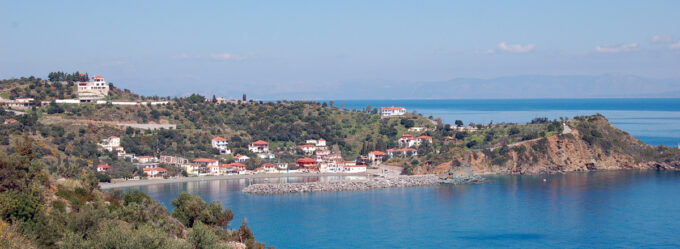Ándros
According to mythology, the island was named after Ándro, son of Ánios, who was a son to god Apollo. However, there is another theory, supported by the ancient Diódoros of Sicily, that the island was named after the general Ándro of King of Crete Radámanthy. Ándros was also known in antiquity as Ydroúsa, Lasía, Nonagría…











